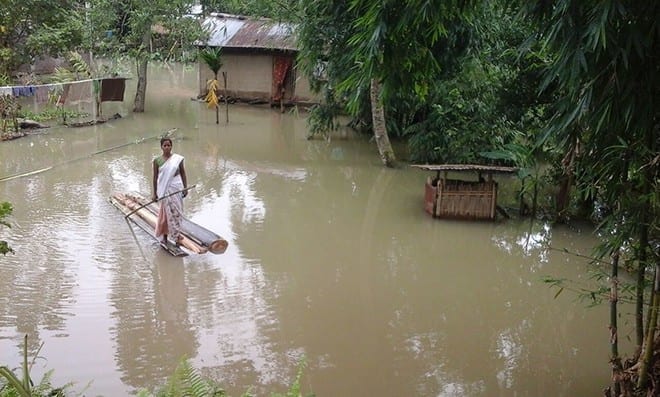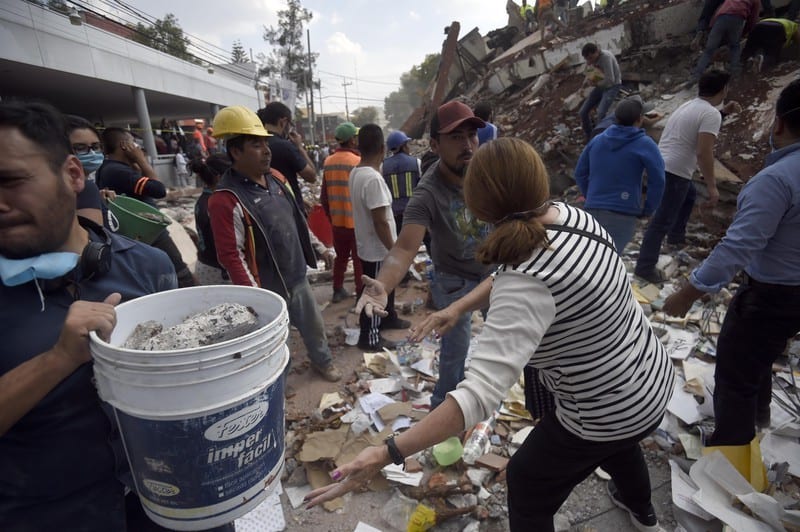
Climate change is bigger than politics and bigger than electoral cycles – New Zealand can and must lead the charge against it. Oxfam is non-partisan. We can’t, and don’t want to tell you how to vote. But before you do, look carefully at where each of the political parties stand on climate change. Our future – and that of our children – depends on it.
Backing the Plan
One year ago, 14 leading aid agencies started working on a campaign calling on all political parties to commit to legally binding pollution reduction targets. As well as having many years of experience working in international development, these 14 aid agencies represent a very broad spectrum of New Zealand society. From secular to faith-based agencies, from Dargaville to Dunedin, we are the voice of hundreds of thousands of New Zealanders with a variety of political views but who are all equally concerned about many of the problems our children will face in the near future, and that some of the poorest people on earth already are.
After finding out that 14 leading international development organisations with years of experience in development are campaigning about climate, we would expect our government to take urgent action to combat this issue – like adopting cross-party support to commit to climate legislation. However, our journey engaging with political parties through this campaign has actually uncovered what seem to be two completely different climate realities.
Two different climate realities
There are currently two different climate realities in New Zealand – and they exist at odds with each other.
One reality – the one where science and facts help us understand our surroundings and inform our decisions – is the one in which New Zealand’s Parliamentary Commissioner for the environment has recommended that this country should adopt climate legislation and work on cross-party support for it. In this reality, scientists agree that extreme weather events have increased in frequency and intensity due to climate change and, as a result, from Houston to Haiti, Barbados to Bangladesh, millions of homes are, right now, underwater, torn apart and blown over. And unless we take urgent action, it will only get worse.
The other reality is that in which our current government seems to be living in. This is a reality run by electoral cycles and party politics and where winning an election takes precedent over our children’s future. In this reality, our current government – who declined our invitation to discuss cross-party support for the campaign – is ‘happy with where we are on climate change’ even though the 14 agencies of the coalition – and the thousands of New Zealanders we represent – agree that they must do more.
What is your reality?
Since 1980, we have witnessed the number of climate-related humanitarian disasters more than doubling. This means that climate change has the potential to wind back development progress made over the last 60 years – while creating havoc to developed and developing countries alike. After many years working in long-term development solutions and responding to humanitarian disasters in over 90 countries, we are not exaggerating when we say that this is one of the biggest development challenges of the 21st century. This is our reality.
The agencies which are part of the Back the Plan campaign have never been and will never be party political and we will not tell you which party to vote for. However, we can’t emphasize enough that NZ voters should look carefully at which parties are thinking beyond short term politics and have expressed commitment to put climate change action into law.
To those parties who have not yet supported climate legislation, it’s not too late and we encourage you to do so – preferably before the election.
Oxfam strongly recommends that the reader do their own research on this topic.
If you want to see each party’s position on this issue, The Spinoff has collated all the policies here: Spinoff’s Policy page.
For more information on this, you can visit these party’s website.
Labour: http://www.labour.org.nz/climatechange
National: https://www.national.org.nz/climate_change
Maori Party: https://d3n8a8pro7vhmx.cloudfront.net/maoriparty/pages/2371/







